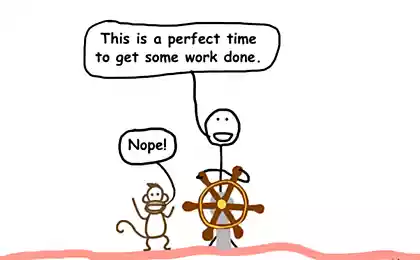220
9 Tips to Decide on Global Change in Your Life

At some point, each of us may feel an inner “call” to global change: changing jobs, moving to another city or country, finding a new way of life. However, between dreaming about it and actually acting in the direction of change lies a huge abyss of doubt, fear, and resistance. If you are on the verge of drastic changes, but do not know where to start, this article will give you nine practical steps to help you decide on such a bold adventure.
According to the American Psychological Association, the desire for change and the desire for renewal can be caused by both external factors (changes in the company, economic fluctuations) and internal ones (the desire for self-development, burnout, change of priorities in life). Therefore, it is important to approach the decision calmly and systematically, so that the next chapter in your story is not just a momentary impulse.
In this article, we will look at nine key recommendations that will help you soberly assess your chances of success, prepare the back and psychologically adapt to the coming changes. The style of the material corresponds to the level of world journalism: there is no empty “motivation bulletin”, but there is a depth that is appreciated by people who are used to analyzing. Each advice is based on professional observations of psychologists, sociologists and researchers of personal growth, and is supplemented by specific recommendations for implementation.
Main part
1. Know why you need change.
Before you get into the excitement of change, answer the main question: “Why?” Motivation is a powerful engine, but it must be articulated. If you’re going to change your life because “everyone I know is doing it” or “I’m tired of it,” it may not be enough for long-term success.
- Write goals: Make a list in which you formulate a “global cause” and several specific goals: improve your financial situation, find a new profession, change your environment, etc.
- Compare the pros and cons: Write down what you will gain from the change and what you will lose. This analysis will provide objectivity and reduce the risk of impulsive decisions.
2. Examine all risks and possible scenarios
Sometimes people leave a stable job or move to another city without calculating basic economic and social factors. Of course, sometimes “jumping into the unknown” is the only way to open new horizons, but reasonable preparation will not hurt.
Risk research involves gathering information about the industry, region, standard of living and competition. If we are talking about a change of profession, look for retraining courses, talk to professionals who already have experience in this field.
- Plan A and plan B: Develop alternatives if the main path turns out to be more difficult than you expected.
- Financial cushion: To feel more confident, create a savings reserve in case of unforeseen circumstances.
3. Make a step-by-step plan.
Without a clear plan, even the best idea can get bogged down in detail. From time to time, the task may seem prohibitive. It is then that a detailed list of actions broken down into intermediate goals comes to the rescue.
- Small steps: determine the immediate tasks (call a potential employer, training webinar, consultation with a coach, etc.).
- Timeline: Each task must have a deadline, otherwise there is a risk of indefinitely procrastinating in the future.
- Track progress: Write down the results, this will support motivation and show how far you have come.

4. Assessment of resource status
Any major change requires enormous moral and often material resources. So it’s important to know if you really have enough “energy” to implement your plans. Resources include not only budget and physical health, but also time, psychological stability, the presence of people willing to help with advice or actions.
- Energy recovery: If you feel on the verge of burnout, it is more important to put your mental and physical health in order than to start changes during this period.
- Build support: Talk about your plans with your loved ones. If they “get involved” in the process, it will be easier for you emotionally and organizationally.
5. Challenge your fears.
Fear is a natural companion of global change. We fear failure, judgment, loss of stability. However, according to many psychologists, behind the most significant victory is often the ability to survive discomfort and go beyond the usual limits.
One of the methods of working with fear is cognitive behavioral therapy, which is designed to help a person recognize irrational beliefs and replace them with more constructive thoughts. If it is not possible to contact a specialist, you can try written practices: write down all the worries and imagine how you solve them step by step.
- Divide fears into manageable and unmanageable: The first can be worked out, the second - to accept or find a workaround.
- Try microdoses of discomfort: deliberately face small challenges to gradually increase your personal resilience to change.
6. Identify criteria for success and criteria for “good enough”
Global changes can blur in consciousness if you don’t know exactly how you’re going in the right direction. Success criteria are specific indicators that show that the plan is being implemented successfully. However, it is equally important to set the line “good enough” to avoid being trapped in perfectionism.
- Success criteria: For example, obtaining the first profit from a new business, if we are talking about career restructuring; or securing a new place of residence for relocation.
- "Good enough": It may not be possible to achieve brilliant results immediately, but there will be important interim successes confirming your growth.

7. Learn new things and be ready to adapt
With global changes, such as a change of profession or a radical reprofiling in business, you may need new skills. Developmental psychology emphasizes that adults can learn just as well as children if they are in a state of purposeful curiosity.
- Invest in education: Courses, online lectures, books – knowledge of new areas will give you an edge and confidence.
- Be flexible. Don’t be afraid to change your mind if something doesn’t work. The world is changing rapidly, and the ability to adapt quickly is a key factor in success.
8. Set deadlines and “reset points”
When we do something big, we rarely predict what will happen in great detail. It is important to determine in advance how long we give ourselves time for a certain stage and when to reconsider the course.
This approach not only disciplines, but also reduces anxiety: you will have a certain milestone to which you will appreciate the journey. If the results don’t match your expectations, you can adjust the plan without feeling like “it’s all gone.”
- Calendar planning: Specify the intervals (for example, 3 or 6 months) in which you want to achieve specific results.
- Reset point: Write down when you are ready to change tactics: failure to achieve key metrics, changes in personal circumstances, etc.
9. Recognize the value of psychological support
When deciding on major changes, do not underestimate the importance of specialists: psychologists, psychotherapists, coaches. Overcoming internal barriers is often much more difficult than acquiring skills or solving financial issues.
In addition, supporting close friends and family can help to cope with emotional overload. Talking to them gives the feeling that you are not alone in your trials, and light criticism “from the outside” often indicates aspects that you may not have suspected.
- Therapeutic care: If you are experiencing serious anxiety or depression, do not hesitate to contact professionals.
- Like-minded groups: Online communities and offline meetings of people who are also changing their lives can inspire and share experiences.
Conclusion
Change is always a mixture of enthusiasm and fear. But it is such turning points that can lead to personal growth, expand horizons and give new opportunities. The road to global change will not be easy, and sometimes you will have to overcome your own doubts, cross internal barriers and adapt to unforeseen circumstances.
The nine tips presented in this article will help you build a consistent strategy, avoid excessive impulsivity and maintain a resource state. The most important thing is to keep in mind the meaning of your changes, monitor progress and not be afraid to ask for help from loved ones or specialists when necessary.
Ultimately, deciding to make a global change is a step toward an updated version of yourself. This process involves not only acquiring new skills or moving to a new place, but also transforming thinking, values and goals. If you feel ready for a big breakthrough, do not delay: form a clear plan, enlist support and start moving towards a fuller, brighter and more inspiring life.
9 Things You Forget About Because of Mental Problems
How to get rid of fear of rejection: 6 effective strategies























